|
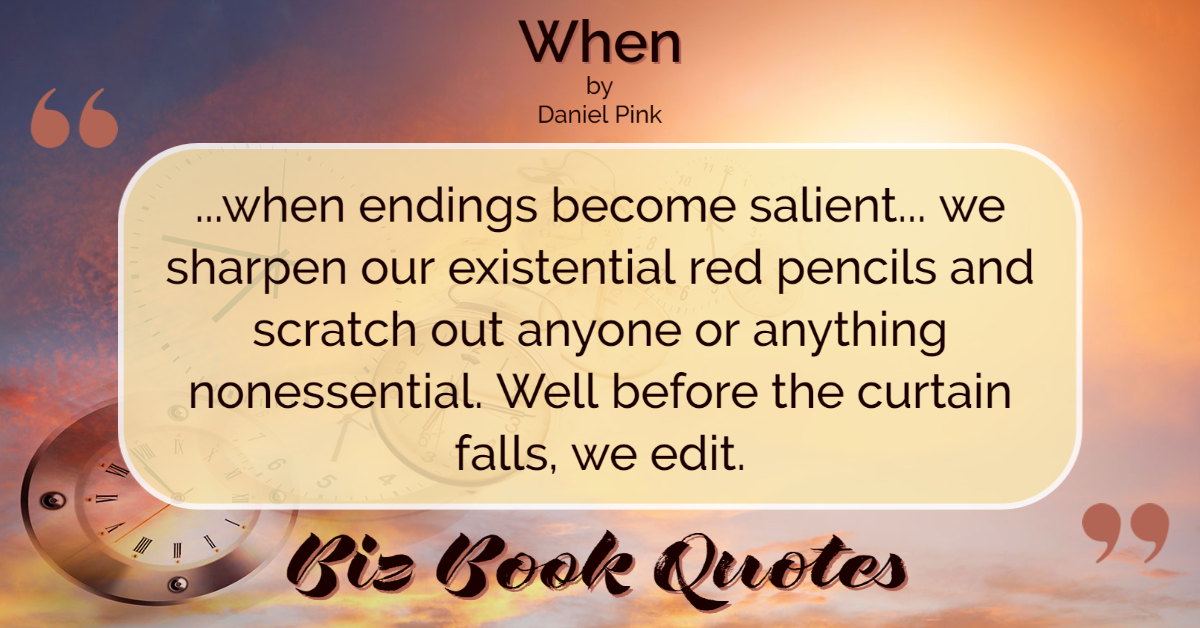
|
When:
…when endings become salient… we sharpen our existential red pencils and scratch out anyone or anything nonessential. Well before the curtain falls, we edit.
|
160 |
|
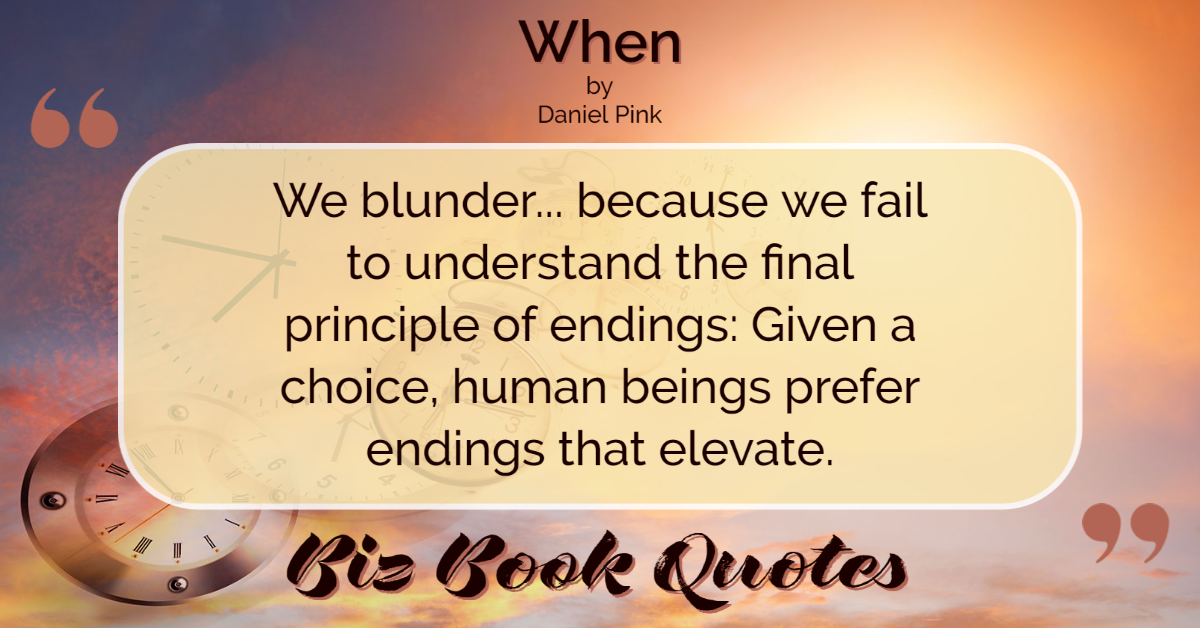
|
When:
We blunder… because we fail to understand the final principle of endings: Given a choice, human beings prefer endings that elevate.
|
161 |
|
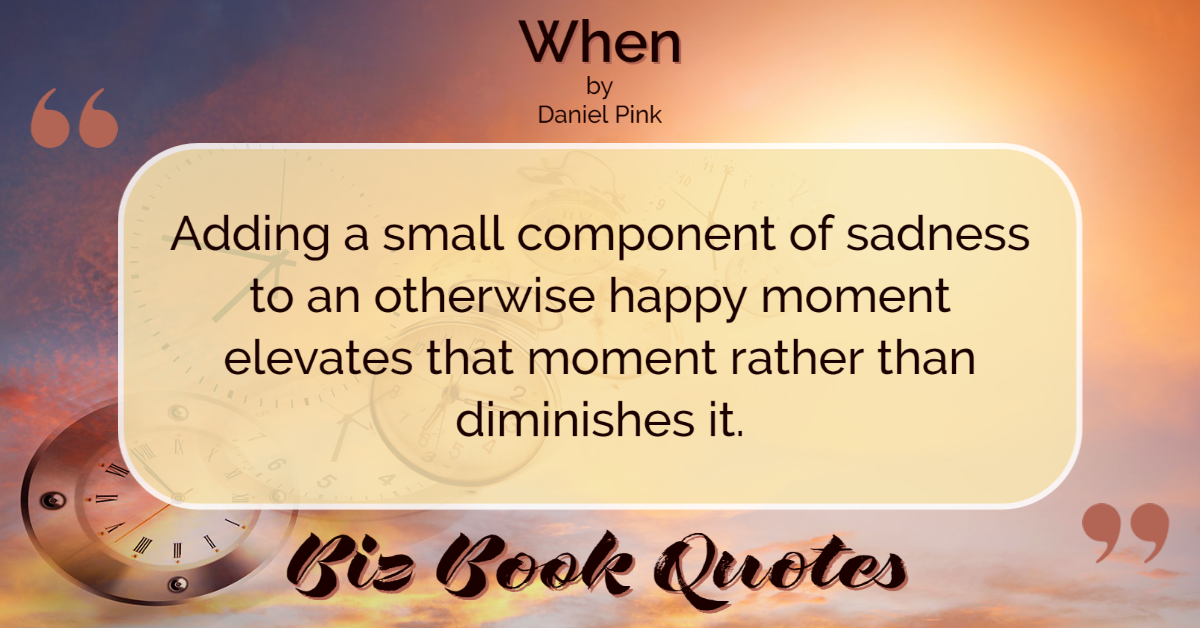
|
When:
Adding a small component of sadness to an otherwise happy moment elevates that moment rather than diminishes it.
|
164 |
|
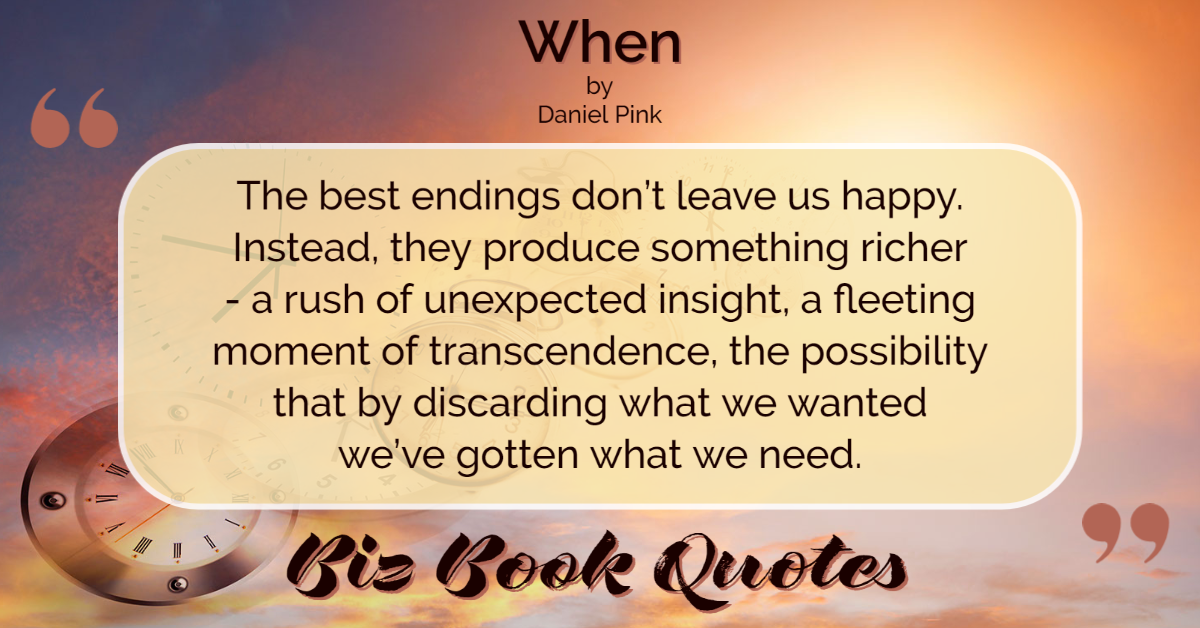
|
When:
The best endings don’t leave us happy. Instead, they produce something richer – a rush of unexpected insight, a fleeting moment of transcendence, the possibility that by discarding what we wanted we’ve gotten what we need.
|
164 |
|
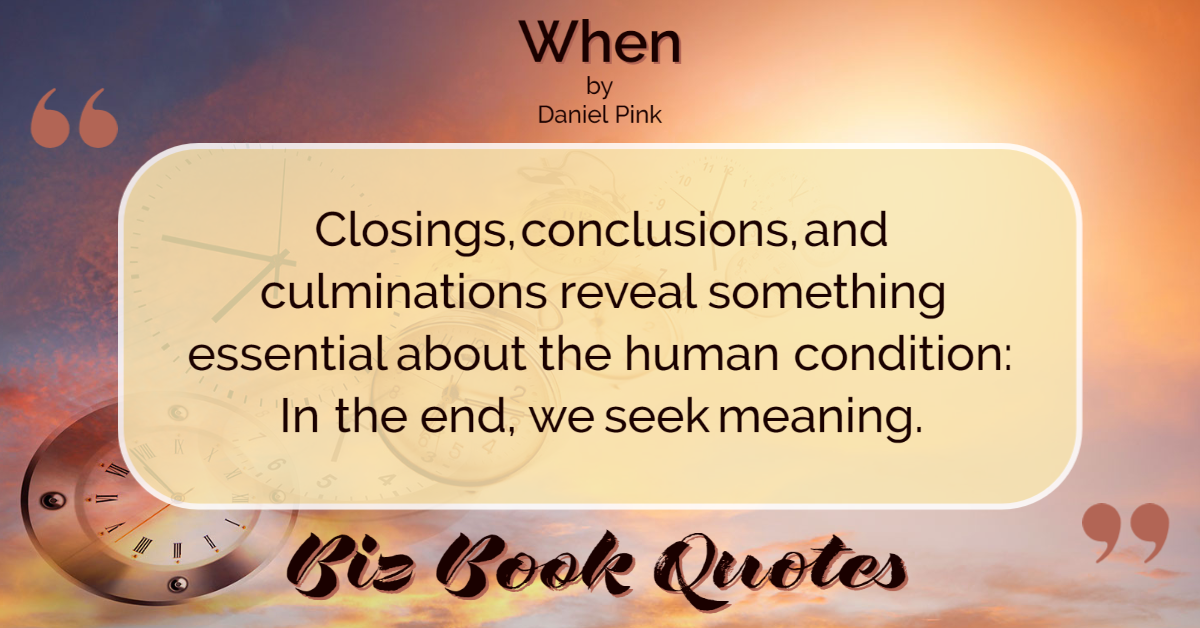
|
When:
Closings, conclusions, and culminations reveal something essential about the human condition: In the end, we seek meaning.
|
164 |
|
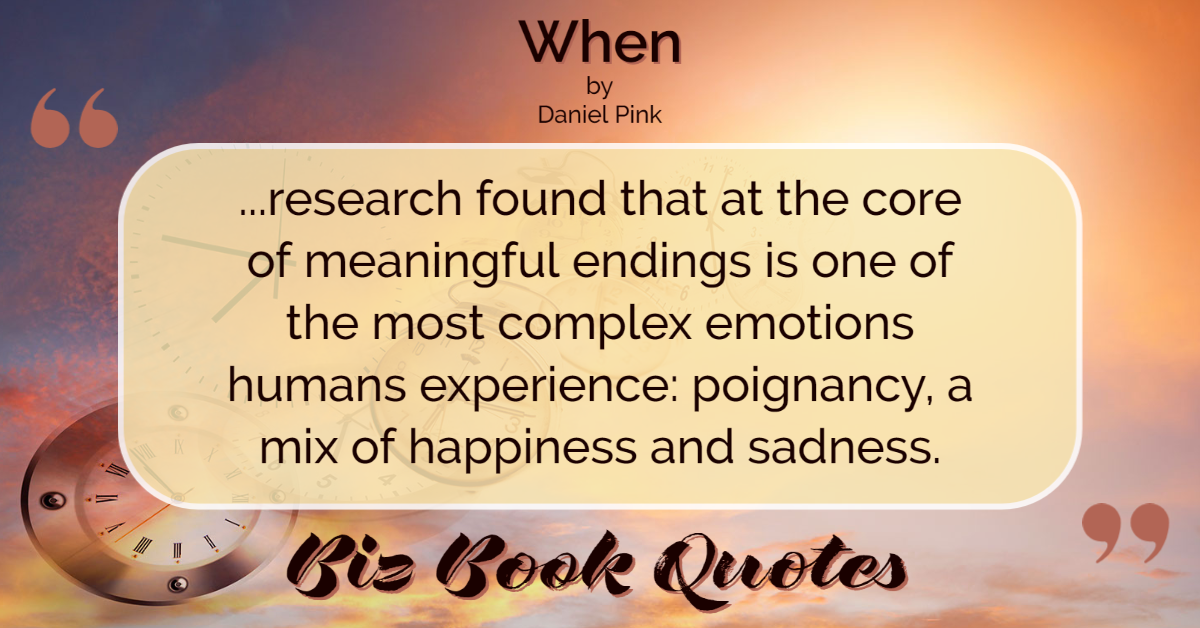
|
When:
…research found that at the core of meaningful endings is one of the most complex emotions humans experience: poignancy, a mix of happiness and sadness.
|
164 |
|
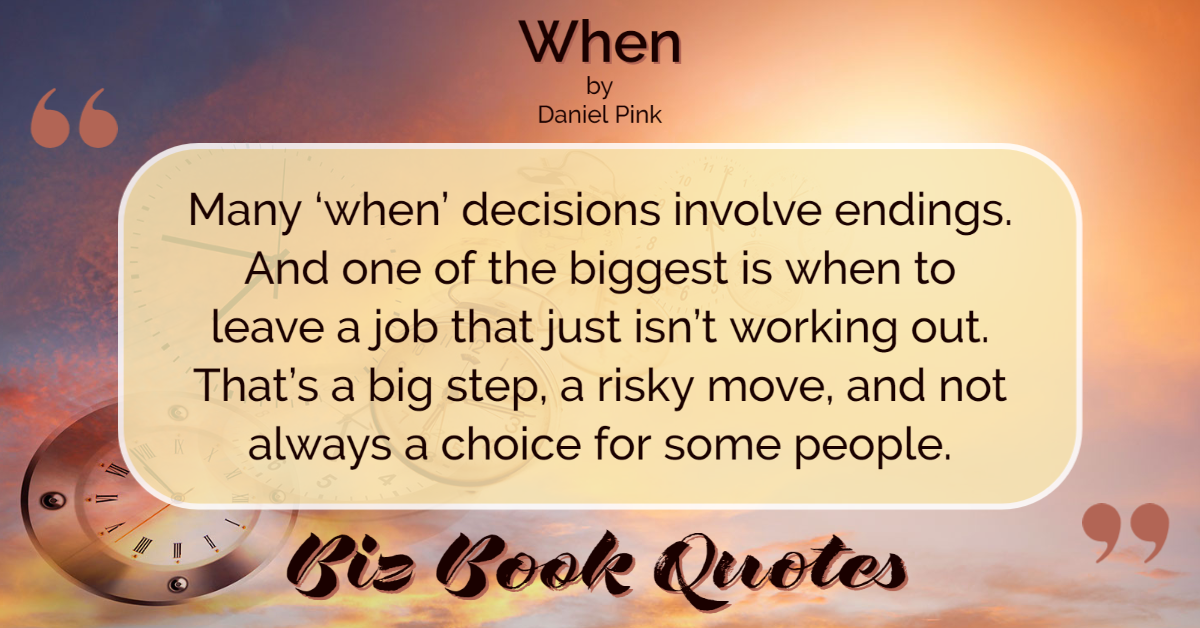
|
When:
Many ‘when’ decisions involve endings. And one of the biggest is when to leave a job that just isn’t working out. That’s a big step, a risky move, and not always a choice for some people.
|
168 |
|
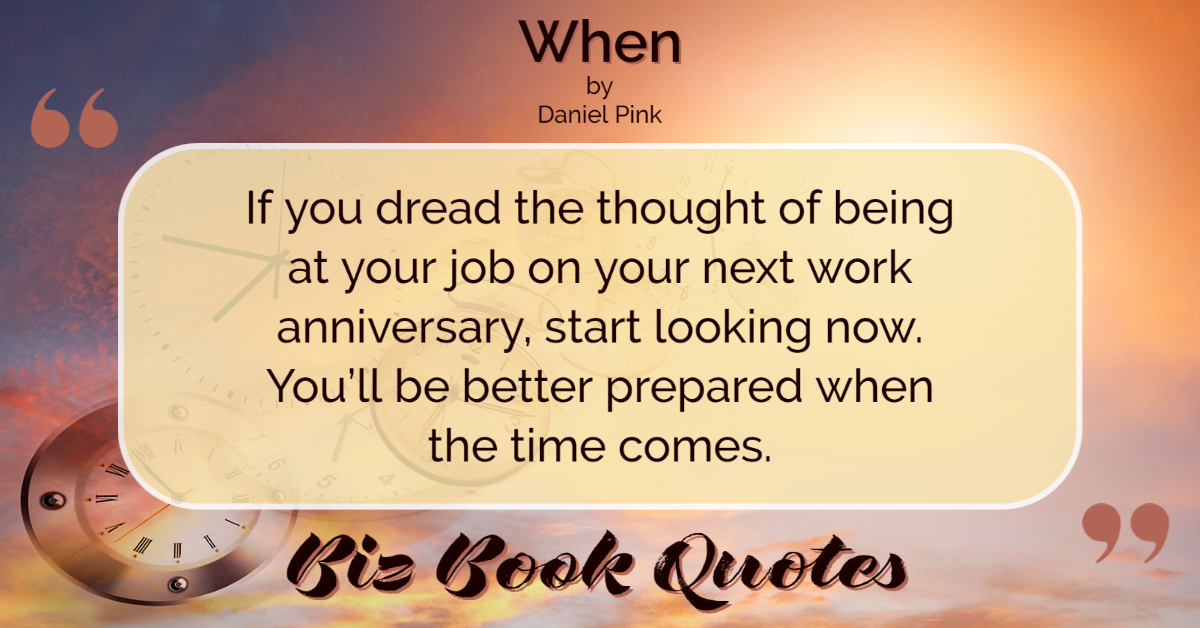
|
When:
If you dread the thought of being at your job on your next work anniversary, start looking now. You’ll be better prepared when the time comes.
|
169 |
|
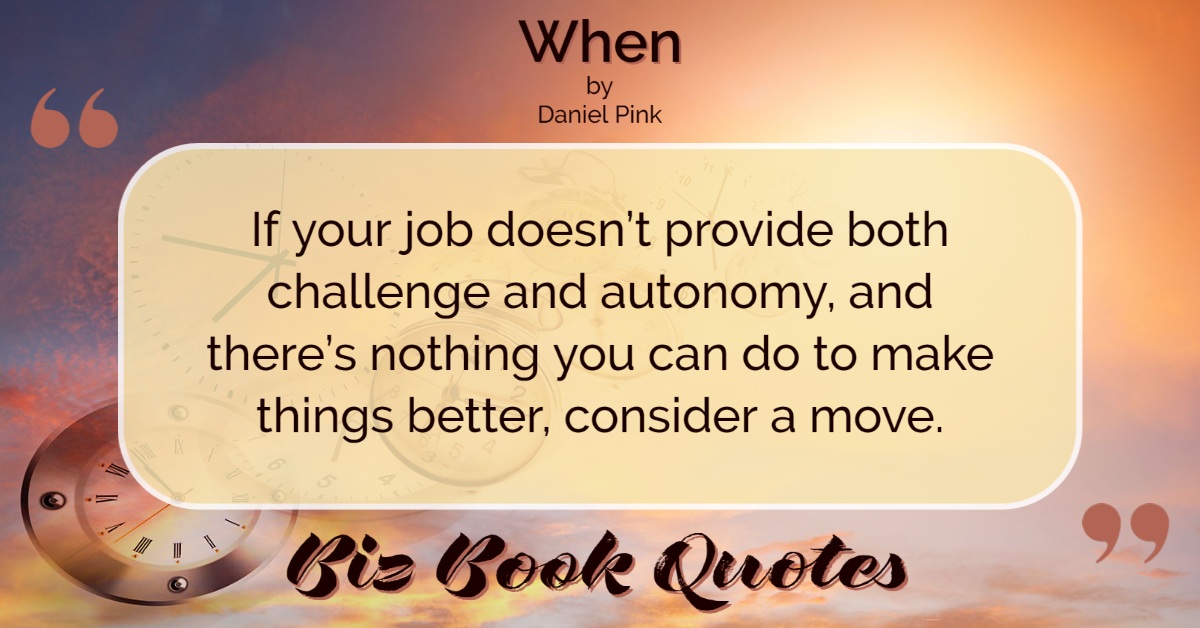
|
When:
If your job doesn’t provide both challenge and autonomy, and there’s nothing you can do to make things better, consider a move.
|
169 |
|
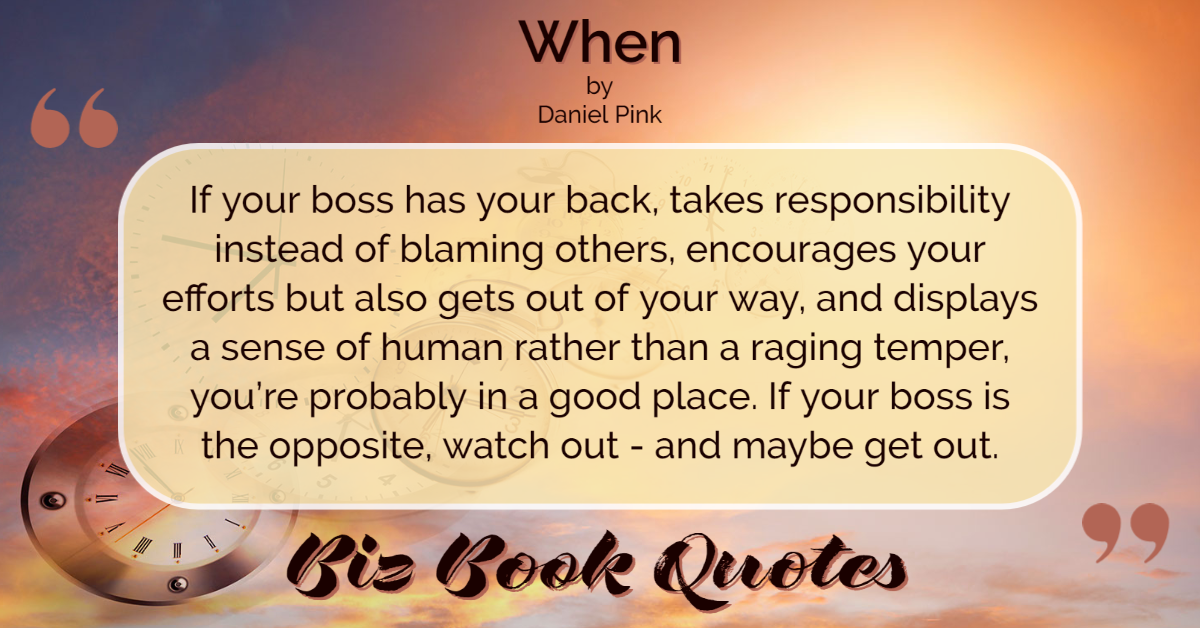
|
When:
If your boss has your back, takes responsibility instead of blaming others, encourages your efforts but also gets out of your way, and displays a sense of human rather than a raging tempter, you’re probably in a good place. If your boss is the opposite, watch out – and maybe get out.
|
169 |











